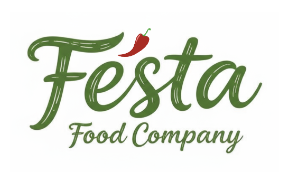Dive Brief:
- Sun Basket, the third largest online meal kit company in the U.S., faced a complaint last year that it included non-organic items in meals marketed as organic, reported BuzzFeed News. The complaint — filed anonymously with the Electronic Retailing Self-Regulation Program (ERSP) — says that despite a USDA logo and marketing messages that imply all ingredients were organic and non-GMO, none of the company's meat and only some of its other ingredients were organic. The filing reflected previous consumer complaints on sites like Yelp about Sun Basket's organic marketing.
- Last year, Sun Basket worked with the ERSP to modify its marketing claims. It moved the organic logo from the top of its website to a section detailing its produce selection, which is mostly organic. The company also nixed some of its marketing messages that contained the word "organic" and began describing its meals as containing "organic and sustainable" ingredients.
- Still, by December of last year the ERSP determined the changes “were still inadequate in clearly communicating to consumers that Sun Basket meals feature organic ingredients wherever possible.” Now when the company can't find an organic piece of produce for the kit, it will either find an alternate organic fruit or vegetable or include a conventionally grown ingredient — including a note disclosing the substitution.
Dive Insight:
Consumers are hungry for organic food. So Sun Basket understandably wanted to market its use of organic ingredients, which fed its image as the nation's leading sustainable, healthy kit provider.
But the company, according to customers and to the complaint filed with the ERSP, failed to make a critical distinction: Some of its food was organic, but not all. For those who didn’t want to be exposed to pesticides, this was a sin of omission. One consumer, whose negative review of Sun Basket was quoted in the article, says she is allergic to preservatives and pesticides, and did not realize initially that Sun Basket’s products contained non-organic products. Only after receiving a delivery of fruit and seeing it had a non-organic UPC code did she know it wasn’t organic.
Even for people without allergic reactions, many consumers prefer organic foods, particularly if they're wary of pesticides. Sales of organic food products grew 8.4% in 2016, according to the Organic Trade Association. That surge is especially important for a meal kit industry, where brands are struggling to differentiate themselves.
As meal kit players jostle for position, competition is coming from all fronts. Albertsons bought Plated. Kroger has expanded Prep+Pared meal kits in California and Ohio, and Amazon began testing its own meal kits last year. To have a niche —particularly one that has a growing base of potential customers — is key.
But misrepresentation can be a killer. Sun Basket CEO Adam Zbar says the company strives to be clear about its products. “We’ve tried extremely hard to be very transparent,” he told BuzzFeed News, but acknowledged miscommunication can occur. To the company's credit, it has made numerous changes to try and bring its organic marketing more in line with reality and consumer perceptions. In addition to its produce substitution notification, the website also gives consumers options of ordering conventional or organic meat items.
But on the company website today, the eye-catching USDA Organic logo still stands out, and an uninformed consumer could think that logo represents all of the products offered — a risk the company will have to work to minimize.






